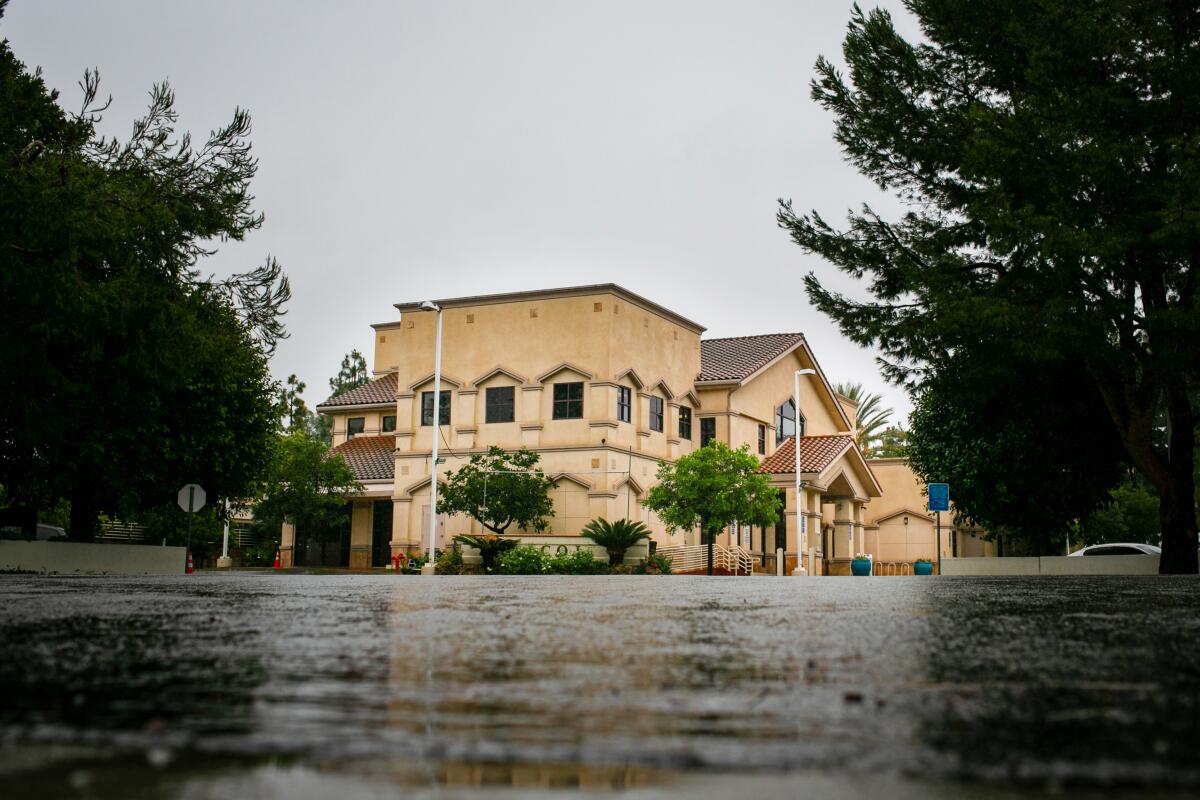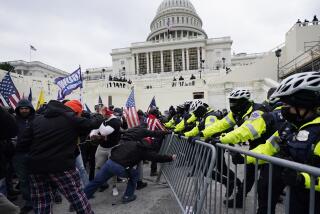Supreme Court deals setback to Muslims suing FBI over spying in an O.C. mosque

WASHINGTON — The U.S. Supreme Court dealt a setback Friday to three Muslim men in Orange County who have sued the FBI for spying on their mosques in the years after the Sept. 11, 2001, attacks.
In a unanimous but narrowly written opinion, the high court said the government may invoke the “state secrets” privilege to block such a lawsuit from proceeding, and ruled the current law does not authorize a judge to examine the supposedly secret information pertaining to the case to determine whether it would be relevant.
The ruling in FBI vs. Fazaga rejects a compromise set out by the 9th Circuit Court of Appeals, which said a judge acting under the Foreign Intelligence Surveillance Act may weigh the evidence behind closed doors. This was seen as a way to allow the lawsuit against the FBI to proceed without revealing intelligence on the basis for the surveillance.
But Justice Samuel A. Alito Jr., writing for the court, said that was a mistake.
“We conclude that Congress did not eliminate, curtail, or modify the state secrets privilege when it enacted” FISA, the law that regulates electronic surveillance.
He called the decision “narrow.” The court’s opinion did not block or end the long-running lawsuit, but sent the case back to the 9th Circuit to reconsider the core issue of whether “privileged” and secret evidence is crucial to the case, as the government maintains.
“The 9th did not decide those questions, and we do not resolve them here,” Alito said.
UCLA law professor Ahilan Arulanantham, who has represented the Muslim men, said the decision means they “can continue to pursue their claims that the FBI spied on them because of their religious beliefs.”
“My clients and many other members of Southern California’s Muslim American communities have been waiting 15 years for justice,” he said. “The decision today brings us one step closer to achieving it.”
But the ruling also shows again the force of the “state secrets” doctrine as a shield for the U.S. government.
On Thursday, the court by a 6-3 vote blocked two former CIA contractors from testifying before a Polish tribunal about the CIA’s waterboarding and torture of supposedly “high value” prisoners in the Bush administration’s war on terrorism. The justices said their testimony could reveal state secrets, even though the basic facts have been public knowledge for years.
For a decade, the Justice Department under Presidents Obama, Trump and now Biden has insisted the lawsuit involving the Orange County mosques should be blocked because it may reveal national security secrets.
In November, the justices sounded divided and uncertain when they heard arguments in the Orange County case. On Friday, they stopped short of saying whether the lawsuit could proceed, and instead decided only that the FISA compromise was inappropriate.
The case began in 2006, when the FBI in Los Angeles hired Craig Monteilh and paid him to pose as a convert to Islam. For two years, he recorded thousands of hours of conversations and compiled names and phone numbers.
When he began to talk in the mosques about violent jihad, several of the Muslim men reported him to the FBI. After his story was revealed, Monteilh broke with the FBI and cooperated with the American Civil Liberties Union in bringing a lawsuit against the FBI.
The lead plaintiff, Yassir Fazaga, was an imam at the Orange County Islamic Foundation, a mosque in Mission Viejo. The suit alleged the FBI’s so-called Operation Flex was a “dragnet surveillance” program designed to “gather information on Muslims.”
The FBI said the aim of Operation Flex “was to determine whether particular individuals were involved in the recruitment and training of individuals in the United States or overseas for possible terrorist activity.” But the FBI and U.S. attorneys did not explain why they targeted several mosques in Orange County for surveillance. That was a “state secret,” they said.
For more than a decade, the lawsuit has been stuck at a preliminary stage in the federal courts in California. Beginning with Atty. Gen. Eric H. Holder Jr. in 2012, top Justice Department officials have said the suit should be dismissed on the grounds it could reveal national security secrets.
In 2019, the 9th Circuit Court, in a 2-1 decision, devised what sounded like a compromise. It said the judges who meet in secret to hear the government’s requests to conduct “foreign intelligence surveillance” should examine the FBI’s basis for undertaking the surveillance of the mosques and decide whether the suit may proceed.
Lawyers for the outgoing Trump administration in December 2020 asked the high court to take up the case and order the dismissal of the suit, saying the 9th Circuit’s approach “poses a substantial risk that state secrets will be disclosed.”
More to Read
Get the L.A. Times Politics newsletter
Deeply reported insights into legislation, politics and policy from Sacramento, Washington and beyond. In your inbox three times per week.
You may occasionally receive promotional content from the Los Angeles Times.











